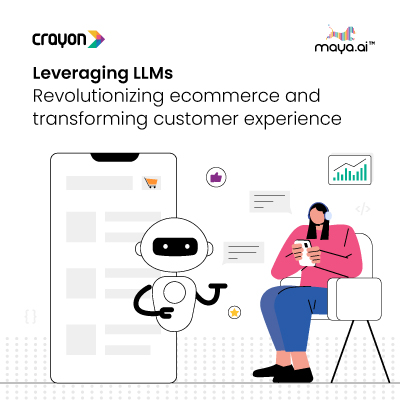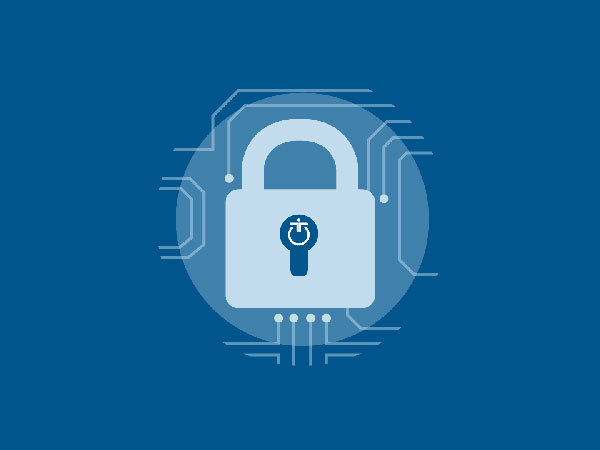Over the past several years, we have heard so many definitions of Big Data; some say it’s a “collection of data sets so large and complex that it becomes difficult to process using traditional data processing applications”, while others say it represents “the technologies and practice of handling large data sets.” It doesn’t matter how these definitions vary in depicting what exactly Big Data is, because in essence, “Big Data” is just another name for the same old data.
The biggest challenge every business faces these days is that they have piles of customer data in an unstructured format and they struggle to find some meaningful insights out of it. Understanding the relationships between different pieces of information available in large datasets is critical as they can give vital hints about the customer preferences and help businesses improve and deliver ultra-personalized services, in turn, meet customer expectations. This innate need to satisfy customers is the core goal for every business.
Given big data helps elevate the quality of service to newer levels, it is swiftly being embraced by all sectors, and the hospitality industry is no exception. In fact, big data is identified as one of the major trends that are impacting the hospitality industry today. It offers unprecedented opportunities to improve the existing customer services, an efficiency of operations, to design innovative marketing strategies and to enhance the overall growth and profitability.
The following are some of the specific areas where big data is transforming the world of hospitality.
Improving customer experience through Personalization
To improve customer experience, businesses must work towards gauging preferences. What is the best way to know these preferences? Is that by collecting data about a customer from different sources especially Internet? There is likely to be an enormous amount of information about every person on the Internet, so the key is to mine this information and get the most relevant details out of it.
For example, a lodging business with multiple restaurants can analyze the transactional data of a customer to get an idea of his or her eating patterns. Also, it can mine for information on user-generated websites and through social media channels to know how the customer enjoyed his food at a particular restaurant. Analyzing information from these sources will give the business an insight into the culinary likes of the customer. When the customer books a hotel reservation the next time, the company can offer a reservation at his or her favorite restaurant too. Also, the company can offer menu choices based on their culinary likes. Such a strategy is sure to improve the travel experience of the user, and he or she is more likely to book into the same hotel in the future too. As a result, the lodging business not only gets incremental revenue, but the customer is also satisfied with this personalized travel experience which in turn, will lead to better customer loyalty.
In another example, a person who posts photos of his new mountain bike on Facebook or Instagram would be interested in a mountain biking trip. Travel operators who offer packages can customize their deals to meet the needs of this mountain biker, and offer the best one to him. The customer is sure to take the offer, and more importantly, he will go back to the same operator for future trips too.
Marketing strategies
Big data can help companies devise the best marketing strategies for each target segment, based on their activities and preferences. When businesses understand their customers well, they can devise the right strategies to reach out to them. For example, if a company knows that a particular target group is spending an average of thirty hours a week on social media, they can devise their marketing strategies through social media channels. Such a strategy will give the greatest visibility for the company within their target group.
With the right big data tools and techniques, it is possible to determine the optimal marketing spend across different marketing channels in real-time. What this means is that businesses can stay on top of the changing preferences of consumers, and use it optimally to get the maximum coverage and higher engagement for their products and services.
Further, big data can also help a business to understand marketing pitfalls, especially the areas where it is losing its customers to competitors. For example, if a company analyzes the path to purchase on a hotel brand’s website, the weblog will show the point where guests are abandoning the site to move on to competitors. This analysis of weblog can help businesses to identify the problem, provide a solution, thus increase customer revenue.
Cost and capacity optimization
The unique feature about the hospitality industry is capacity constraints. Most travel companies and hotels lose money when they are unable to predict the demand for their services. To avoid this financial loss, companies can use big data to get more information with higher frequency in real-time, so that they can make smarter and more dynamic pricing decisions and optimized capacity planning.
Businesses can get this information from a variety of sources such as social media, user-generated content sites, reservation and booking logs, call center logs, emails, photos, videos and so much more.
One of the leading international airline companies uses big data for its pricing and capacity strategy. They use different big data tools to add new destinations and connections based on the needs of its target markets. In addition, they use big data to deliver the optimal seat-price combination for every customer. These pricing strategies have helped this international brand become one of the best airline companies within a span of ten years. This example showcases the potential of big data, and how companies can benefit from it.
Despite these advantages, there continue to be some challenges in big data implementation. One of the key challenges is to constantly get new and actionable insights from the tons of data being generated every day. This mining of information requires top skills and knowledge, and given the complexity of this new technology, skillful talent is few and far between. Also, the traditional business structures make it difficult to work across functions in different departments like IT, marketing and finance. Lastly, security concerns continue to exist, and this acts as a major roadblock for companies to collect data from the Internet. Companies and business consortiums around the world are working towards removing these obstacles, and they are likely to come up with the appropriate solutions in the near future.
Big data will continue to evolve and transform the hospitality industry in many ways. It has opened up new opportunities for businesses in this industry to actively engage with customers, customize products and services, and help devise high impact marketing strategies. These opportunities empower the players in the hospitality industry to improve their operational efficiency, competitiveness, and profitability.
To conclude, big data is the perfect pill to boost the hospitality industry!




















